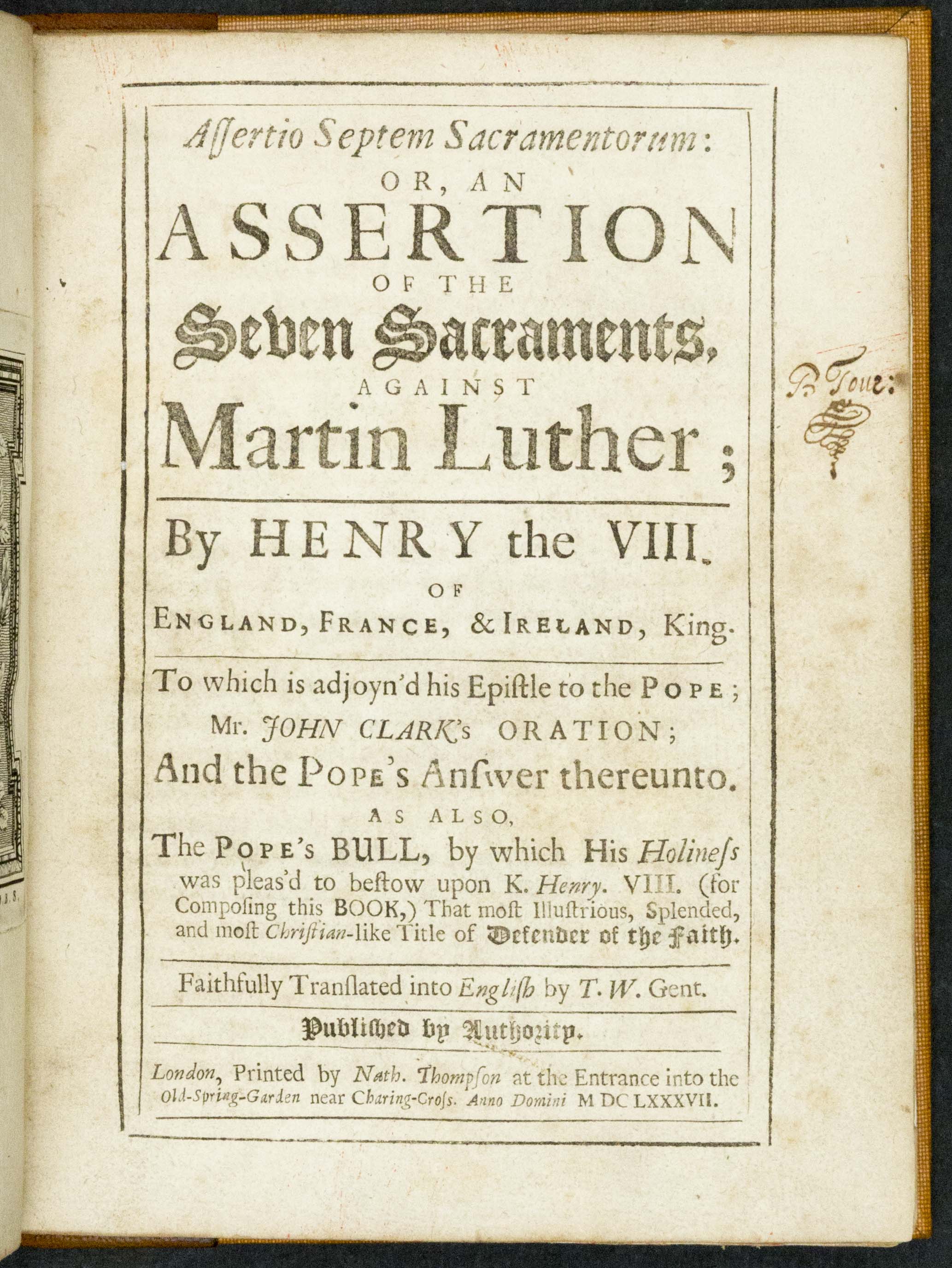
Henry VIII
London: N. Thompson, 1687
[B.S.] 502
In the early 1520s, nothing could have been further from Henry VIII’s mind than seceding from the Roman Catholic Church. Thomas More and Bishop John Fisher helped him to refute Martin Luther’s The Babylonian Captivity of the Church (1520) and defend the seven sacraments of the Church (reduced by Luther to two, baptism and the eucharist) in the Assertio septem sacramentorum. Henry further asserts the authority of the Pope as ‘the Chief Priest and Supreme Judge upon Earth’. First published in 1521, the work ran through five editions in Latin and German in 1522-3; it is shown here in its first English translation. In it Henry vituperates Luther for malice, evil, impudence, and describes him as a serpent and a hideous monster, full of venom. Luther answered by abusing Henry as a pig and a drunkard. Henry dedicated the Assertio to Pope Leo X, who rewarded him by bestowing upon him the title ‘Fidei defensor’, ‘Defender of the Faith’: a title formally conferred by Cardinal Wolsey at a grand ceremony at Greenwich Palace in 1522. Although Henry later disowned the book, the title remained, and the initials ‘F.D.’ remain beside the head of the monarch on English coins today.